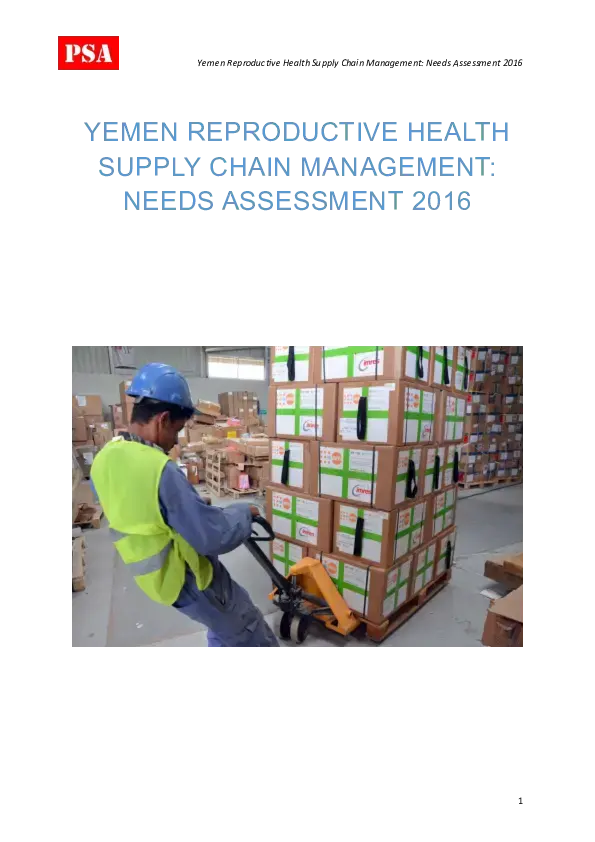Pamela Steele Associates (PSA) was commissioned to carry out a needs assessment and a competency assessment to understand the current challenges in the reproductive health supply chain. The assessments were carried out through two different surveys administered to informants involved in the supply chain.
The needs assessment revealed flaws along the reproductive health supply chain. The main issue seems to be a lack of budget at the Ministry of Health (MoH) level for fundamental supply chain functions. Nevertheless, some cause for cautious optimism can be found in the fact that most survey respondents believe that it is either possible to improve Yemen’s reproductive health system even while the political conflict is ongoing.
Transport and infrastructure: Most respondents listed lack of finances as the key issue. In addition, roads are poor, vehicles are scarce, the ongoing fighting is destroying transport links, and there are no leaders overseeing the transportation process.
Distribution: Respondents reported that there is no budget for distribution or for security. At the same time, the distribution system needs to become more coordinated. Respondents believe workers and supplies should be regularly monitored, to avoid depletion of medicine stores.
Warehousing: According to respondents, warehouse space is being destroyed by ongoing fighting. In addition, staff are lacking in the necessary training and storage conditions are not always appropriate. Many respondents think warehouses designed especially for reproductive health should be built.
Quantification, planning and procurement: Respondents reported that there is no budget to estimate need or to purchase the necessary amount of goods. Poor availability of data is another significant problem referred to by respondents – there is a need for better information systems to enable accurate needs assessments to be carried out.
Procurement: Respondents reported that the cost of medicines has increased. Lack of baseline data available on the levels of supplies and costs means basic procurement standards and procedures cannot be adhered to. High reliance on aid agencies and international donors means Government fail to take initiative. Respondents believe that there is a need for a specific procurement budget.
Leadership and supervision: Almost half of respondents described leadership as ‘weak’ or ‘very weak’. Leaders need continuous training to strengthen their skills and pass down knowledge to the rest of the system. Respondents believe there is a need for a special budget for leadership training.
On workshops, capacity training and capacity development: According to the respondents, the workforce is not good enough in terms of its size and the training it receives. There is also a distinct lack of worker supervision.
Information systems: Respondents stated that data collection is based on manual system and is inefficient. Manual systems need to be upgraded to electronic ones and applied to all health facilities. Some respondents said that workers need to be trained in information systems in an ongoing way.
Financing: Half of all respondents said that there was no budget allocated at all by the MoH. Donor funds are therefore vital. However, donors are filling a void and so national leaders are not working out a strategy for how to stand on their own two feet and provide the services themselves. Some respondents criticised donors for a lack of transparency and a tendency to provide assistance that supports their own overall goals.
Role of the private sector: 70% of respondents believe that the private sector has a role to play in improving Yemen’s reproductive health system. Several respondents praised current actions of the private sector as they have been responsible for offering emergency relief in the absence of ministry action.



